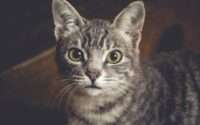Teacup Chihuahua 101: Discover the Adorable World of Pocket-Sized Pooches!
Welcome to our comprehensive guide on Teacup Chihuahuas—the tiny dogs with big personalities! In this article, we’ll explore everything you need to know about these pint-sized pups, from their history and characteristics to their care needs and considerations for prospective owners.
Teacup Chihuahuas have captured the hearts of dog lovers worldwide with their adorable appearance and feisty temperament. Despite their small size, these miniature marvels pack a punch in terms of personality, making them popular companions for individuals and families alike.
Join us as we embark on a journey into the world of Teacup Chihuahuas, uncovering the secrets behind their charm and exploring the joys and responsibilities of owning one of these diminutive darlings.
The History of Teacup Chihuahuas
To truly appreciate the Teacup Chihuahua, it’s essential to understand their fascinating history. Originating from the state of Chihuahua in Mexico, these tiny dogs have a rich heritage that dates back centuries.
Teacup Chihuahuas are descendants of the ancient Techichi dogs, which were revered by the Toltec civilization for their mystical qualities and believed to have spiritual significance. Over time, these small dogs were selectively bred for their diminutive size and charming demeanor, resulting in the modern-day Chihuahua breed we know and love.
The term “Teacup” Chihuahua refers to an even smaller variation of the breed, typically weighing less than four pounds. While some debate surrounds the legitimacy of the Teacup Chihuahua designation, there’s no denying the appeal of these petite pups to dog enthusiasts worldwide.
Characteristics of Teacup Chihuahuas
Teacup Chihuahuas may be small in stature, but they possess an abundance of unique characteristics that set them apart from other breeds. Here’s a closer look at what makes these tiny dogs so special:
- Size and Appearance: Teacup Chihuahuas typically weigh between two and four pounds and stand around six to nine inches tall. They have a compact, apple-shaped head, large expressive eyes, and erect ears. Despite their diminutive size, Teacup Chihuahuas exude confidence and charm wherever they go.
- Personality Traits: Known for their bold and spirited nature, Teacup Chihuahuas have larger-than-life personalities. They are often described as loyal, affectionate, and fiercely protective of their loved ones. Despite their small size, they possess a feisty demeanor and aren’t afraid to stand their ground.
- Temperament: Teacup Chihuahuas are highly intelligent and adaptable dogs. They thrive on attention and affection from their human companions and enjoy being the center of attention. While they may be wary of strangers, they form strong bonds with their family members and are known for their unwavering loyalty.
- Energy Level: Despite their small size, Teacup Chihuahuas have plenty of energy to spare. They enjoy regular play sessions and daily walks to help burn off excess energy. However, they are equally content curling up on their owner’s lap for a cozy nap.
Pros and Cons of Owning a Teacup Chihuahua
Owning a Teacup Chihuahua comes with its fair share of advantages and challenges. Here’s a closer look at the pros and cons of welcoming one of these pint-sized pups into your home:
- Pros:
- Compact Size: Teacup Chihuahuas are small enough to comfortably fit in most living spaces, making them ideal for apartment dwellers or individuals with limited space.
- Affectionate Nature: These tiny dogs are known for their loving and affectionate demeanor, forming strong bonds with their owners and providing endless companionship.
- Portability: Due to their small size, Teacup Chihuahuas are easy to transport and make excellent travel companions for those on the go.
- Cons:
- Fragility: Teacup Chihuahuas are delicate dogs that require gentle handling and supervision, especially around young children or larger pets.
- Health Concerns: Due to their small size, Teacup Chihuahuas are more prone to certain health issues, such as dental problems, hypoglycemia, and respiratory issues.
- Training Challenges: Teacup Chihuahuas can be stubborn and independent, which may present challenges during training. Consistent and patient training methods are essential for success.
Health Considerations for Teacup Chihuahuas
Ensuring the health and well-being of your Teacup Chihuahua is paramount, given their small size and susceptibility to certain health issues. Here are some important health considerations for Teacup Chihuahuas:
- Dental Care: Teacup Chihuahuas are prone to dental problems, such as tooth decay and gum disease. Regular dental care, including brushing their teeth and providing dental chews, can help prevent dental issues and maintain their oral health.
- Hypoglycemia: Due to their small size and high metabolism, Teacup Chihuahuas are at risk of hypoglycemia, a condition characterized by low blood sugar levels. It’s essential to feed them small, frequent meals throughout the day and monitor their energy levels closely.
- Respiratory Issues: Teacup Chihuahuas may experience respiratory issues, such as tracheal collapse or difficulty breathing, due to their small airways. Avoid exposing them to extreme temperatures and provide a well-ventilated environment to minimize respiratory stress.
- Regular Veterinary Check-ups: Routine veterinary check-ups are crucial for monitoring your Teacup Chihuahua’s health and detecting any potential issues early on. Your veterinarian can provide personalized recommendations for preventive care, vaccinations, and parasite control.
Care and Maintenance of Teacup Chihuahuas
Caring for a Teacup Chihuahua involves meeting their unique needs and providing them with the love and attention they deserve. Here are some essential tips for caring for and maintaining your Teacup Chihuahua’s health and well-being:
- Nutrition: Feed your Teacup Chihuahua a balanced diet formulated for small breed dogs. Choose high-quality dog food that meets their nutritional needs and avoid overfeeding to prevent obesity.
- Grooming: Regular grooming is essential for keeping your Teacup Chihuahua’s coat healthy and free of tangles and mats. Brush their coat several times a week and bathe them as needed, using a mild dog shampoo.
- Exercise: Despite their small size, Teacup Chihuahuas are active dogs that require regular exercise to stay healthy and happy. Take them for daily walks, engage in play sessions, and provide mentally stimulating activities to keep them entertained.
- Socialization: Socialize your Teacup Chihuahua from a young age to help them develop confidence and good behavior. Expose them to different environments, people, and animals to ensure they are well-adjusted companions.
- Training: Start training your Teacup Chihuahua early and use positive reinforcement techniques to encourage good behavior. Be patient and consistent in your training efforts, and provide plenty of praise and rewards for desired behaviors.
By following these care and maintenance tips, you can ensure that your Teacup Chihuahua leads a happy, healthy, and fulfilling life as a cherished member of your family.
Training and Socialization for Teacup Chihuahuas
Training and socialization are essential aspects of raising a well-behaved and well-adjusted Teacup Chihuahua. Here’s how to approach training and socialization for your pint-sized pup:
- Early Training: Start training your Teacup Chihuahua as soon as you bring them home. Focus on teaching basic obedience commands such as sit, stay, and come, using positive reinforcement techniques like treats and praise.
- Consistency: Be consistent in your training efforts and establish clear boundaries and expectations for your Teacup Chihuahua. Use the same commands and rewards consistently to reinforce desired behaviors and discourage unwanted ones.
- Socialization: Socialize your Teacup Chihuahua from a young age to help them feel comfortable and confident in various situations. Introduce them to different people, animals, environments, and experiences to prevent fearfulness and aggression.
- Patience and Positive Reinforcement: Be patient and patient with your Teacup Chihuahua during training sessions. Avoid punishment-based methods and instead focus on positive reinforcement, rewarding good behavior with treats, praise, and affection.
Teacup Chihuahuas as Family Pets
Teacup Chihuahuas may be small in size, but they have big hearts and boundless love to offer their families. Here are some reasons why Teacup Chihuahuas make excellent family pets:
- Compact Size: Teacup Chihuahuas are well-suited for families living in apartments or small homes due to their compact size. They don’t require much space and can thrive in urban environments.
- Affectionate Nature: Despite their small stature, Teacup Chihuahuas are incredibly affectionate and devoted to their families. They form strong bonds with their human companions and enjoy spending quality time cuddling and snuggling.
- Playful Demeanor: Teacup Chihuahuas have a playful and spirited nature that adds joy and laughter to family life. They love engaging in interactive play sessions and entertaining their loved ones with their antics.
- Loyal Companionship: Teacup Chihuahuas are fiercely loyal to their families and will go to great lengths to protect and defend them. They make excellent watchdogs and will alert their owners to any potential dangers or intruders.
- Adaptability: Teacup Chihuahuas are adaptable dogs that can easily adjust to various lifestyles and living situations. Whether you’re a single individual, a couple, or a family with children, a Teacup Chihuahua can fit right in and become a beloved member of your household.
When you welcome a Teacup Chihuahua into your family, you’re inviting endless love, laughter, and companionship into your home. With proper care, training, and socialization, your Teacup Chihuahua will thrive as a cherished family pet for years to come.
Stories and Testimonials from Teacup Chihuahua Owners
Discover the heartwarming stories and testimonials from Teacup Chihuahua owners who have experienced the joy and companionship of these pint-sized pups:
- Bella’s Story: “Bella, our Teacup Chihuahua, may be small in size, but she has a big personality! From snuggling up on the couch to accompanying us on outdoor adventures, Bella brings endless love and laughter into our lives.”
- Max’s Testimonial: “Max, our Teacup Chihuahua, has been the perfect addition to our family. Despite his tiny stature, Max has a fearless spirit and loves exploring the world around him. He’s brought so much joy and happiness into our home.”
- Luna’s Journey: “Luna, our Teacup Chihuahua, was a rescue dog who stole our hearts from day one. Despite her difficult past, Luna is the epitome of resilience and love. She’s taught us the true meaning of unconditional love and loyalty.”
These heartwarming stories and testimonials showcase the special bond between Teacup Chihuahuas and their devoted owners, highlighting the joy and companionship they bring into their lives.
Conclusion
As we conclude our exploration of Teacup Chihuahuas, we’re reminded of the unique charm and companionship these pint-sized pups offer to dog lovers around the world. From their spirited personalities to their unwavering loyalty, Teacup Chihuahuas have a way of capturing our hearts and enriching our lives in countless ways.
Whether you’re considering adding a Teacup Chihuahua to your family or already have one by your side, we hope this comprehensive guide has provided valuable insights and information to help you better understand and care for these delightful dogs.
Remember, owning a Teacup Chihuahua comes with its joys and responsibilities, but the love and companionship they provide make it all worthwhile. By providing them with the love, care, and attention they deserve, your Teacup Chihuahua will be a cherished member of your family for years to come.
Thank you for joining us on this journey into the world of Teacup Chihuahuas. May your bond with your beloved canine companion continue to grow stronger with each passing day.
Frequently Asked Questions
Are Teacup Chihuahuas a separate breed?
No, Teacup Chihuahuas are not a distinct breed but rather a smaller variation of the standard Chihuahua breed.
What is the average lifespan of a Teacup Chihuahua?
Teacup Chihuahuas typically live between 7 to 12 years, with proper care and attention.
Are Teacup Chihuahuas suitable for families with children?
While Teacup Chihuahuas can be loving companions, their small size makes them more delicate and prone to injury, so they may not be the best choice for households with young children who may not understand how to handle them gently.
Do Teacup Chihuahuas require a lot of exercise?
Despite their small size, Teacup Chihuahuas are energetic dogs and benefit from regular exercise, such as daily walks and play sessions. However, their exercise needs can be met indoors or in small spaces.
Are Teacup Chihuahuas hypoallergenic?
No dog breed is completely hypoallergenic, including Teacup Chihuahuas. However, they have short coats that shed minimally, which may be more suitable for individuals with allergies.
Do Teacup Chihuahuas have any specific grooming needs?
Teacup Chihuahuas have short coats that require minimal grooming. Regular brushing and occasional baths are usually sufficient to keep their coat healthy and shiny.
Are there any health concerns associated with Teacup Chihuahuas?
Yes, Teacup Chihuahuas are more prone to certain health issues due to their small size, including dental problems, hypoglycemia, and respiratory issues.
How can I train my Teacup Chihuahua?
Training a Teacup Chihuahua requires patience, consistency, and positive reinforcement techniques. Start with basic obedience commands and focus on socialization to ensure a well-behaved companion.
Can Teacup Chihuahuas live in apartments?
Yes, Teacup Chihuahuas are well-suited for apartment living due to their small size and low exercise requirements. However, they still need daily mental and physical stimulation to stay happy and healthy.
Are Teacup Chihuahuas good with other pets?
Teacup Chihuahuas can get along well with other pets if properly socialized from a young age. However, supervision and gradual introductions are recommended, especially with larger or more energetic animals.




